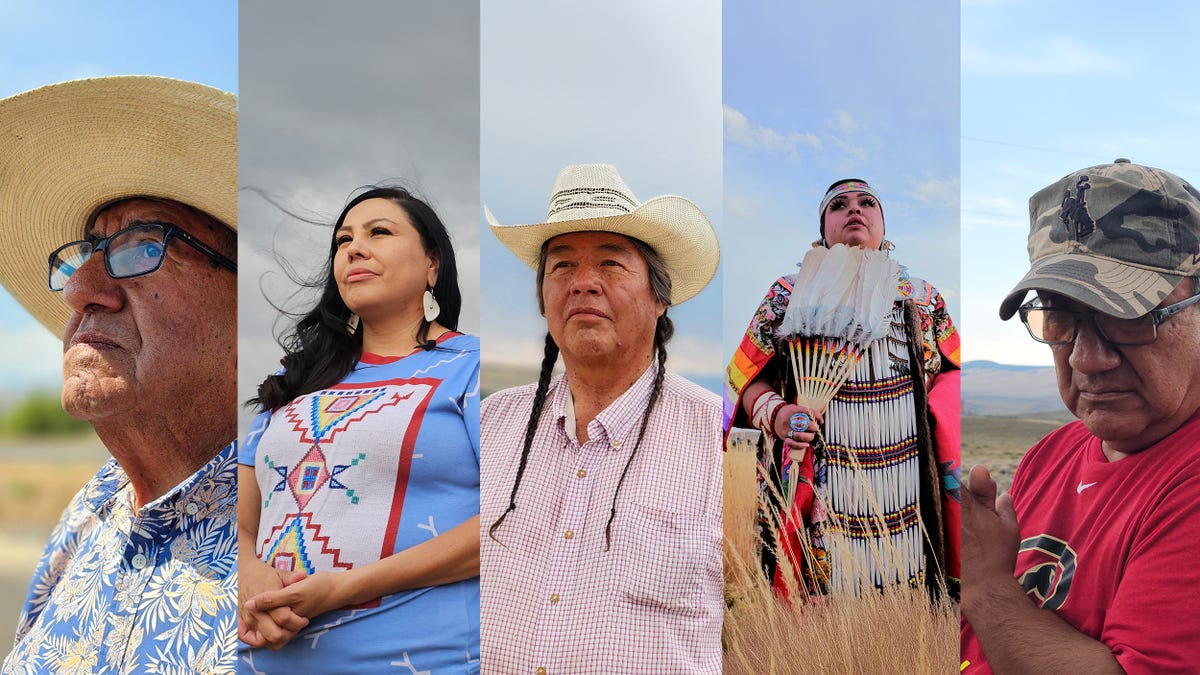Maine
From small town Maine, Substack luminary Heather Cox Richardson discusses her new book about the rise of authoritarianism in the US – The Boston Globe

Richardson has a busy schedule planned in support of her latest book, “Democracy Awakening: Notes on the State of America,” including appearances at WBUR CitySpace, the Music Hall in Portsmouth, and the Boston Book Festival.
“Then we’ll see about [next] fall, because of course this election is going to be huge,” she said just after Labor Day, during a reporter’s visit with her in the coastal Maine town where she lives. “I just don’t know what my future looks like.”
On the eve of a previous presidential election, in 2016, Richardson truly had no idea what her future would become. A historian whose specialty was the Reconstruction era of the late 19th century – “I wasn’t that plugged in then,” she recalled; “I followed the news like anybody else” – she soon found herself compelled to create some context for the mounting chaos of the Trump years.
Her nightly newsletter, “Letters from an American,” quickly became the most successful account on the subscription platform Substack, a distinction that only continues to grow. “Democracy Awakening” is a culmination of Richardson’s work of the past several years, presented in three sections: a prehistory of the recent efforts to undermine our democracy, a recap of the events of the Trump administration, and a blueprint for “Reclaiming America.”
“The whole point is to tell us how we got here, and where ‘here’ is, but then to tell us how to get out,” explained Richardson, sitting at a picnic table on the pier where her husband operates a lobster shack.
Just days ago, the small town where she lives and works bustled with summer visitors. Now, the season is over. The lobster shack was closed.
“Labor Day is history,” Richardson said, “and they roll up the roads.” Gazing out at the harbor, she noted that the water seemed “crazy calm. It looks like you could skate on it, which is very rare.”
Richardson has spent much of her life in this peninsular village of 600 or so residents. (She also keeps an apartment outside Boston, which she uses during the week when she’s teaching.) She has three adult children from a previous marriage; she and her husband, Buddy Poland, were married a year ago. Their great-grandparents knew each other from the local fishing community.
“We don’t all think alike,” she said of her neighbors. “But lots of us have roots that go way back. One of the things that really jumps out to me [about the place she calls home] is that it’s a curiously old-fashioned way to grow up.”
She was born in Chicago, where her parents met after World War II. They moved to Maine in the late 1960s, while Richardson, the youngest of four children, was still in elementary school. She attended Phillips Exeter Academy and eventually earned a Ph.D. at Harvard University.
Despite the tumultuous times that she’s been documenting, the optimism implied by the title of her book is no accident. It’s a better sales hook, she joked, than “We’re All Going to Hell in a Handbasket.”
“The truth is that I am more optimistic than I have been in a very long time, because people are paying attention,” she said.
By contrast, she recalled one “uh oh” moment from the mid-2000s, when then-President George W. Bush began making unprecedented use of the obscure tactic of “signing statements” – in effect, eroding congressional power by challenging certain aspects of a bill even as it is signed into law.
When she brought up the subject with colleagues and fellow historians, many of them shrugged. “I remember thinking, ‘Oh boy, this is not going in a good direction.’”
Now, however, even ordinary citizens are keenly aware of the daily threats to democracy, from voting restrictions and legislative stonewalling to certain leaders’ blatant disregard for the truth. Richardson has earned her huge following largely because of her even keel. But there are some things even she can’t abide.
Erin Clark/Globe Staff
“I really try always to be positive in public and on social media,” she said. “But I lose it on Marsha Blackburn,” the Republican senator from Tennessee.
“One of the things I find fascinating in this moment is that the Republican Party has simply given up on a reality-based world,” she says. “Marsha Blackburn just lies. And I find it, like, mind-boggling. I find it so deeply offensive.”
It’s been all but forgotten, Richardson pointed out, that during the 2016 primary season, Donald Trump “was the most moderate Republican. He was going to get better, cheaper healthcare, close the loopholes, bring back manufacturing and infrastructure. In fact, everything he promised, Biden did.
“You know, I should write about that,” she added.
The middle section of her book reads like a Greatest Hits of the Trump presidency – the attacks on civil servants and career diplomats, the “very fine people on both sides” in Charlottesville, the photo op with the Bible. She knew that material frontwards and backwards from writing the newsletter, she said, and yet she still found herself “shocked” as she read through her own manuscript.
“When you strip out the noise in that section, it is the [story of the] rise of an authoritarian,” she said. “I was also shocked at how upset it made me.”

Richardson traces our democracy’s current peril back to previous episodes in the country’s history. During Reconstruction, for example, white Southerners began to complain about government “overreach”: With tax dollars supporting public works such as roads and schools, Black folks were benefiting disproportionately, they argued.
“So you’ve essentially got a redistribution of wealth,” Richardson explained, “and that’s ‘socialism.’”
The so-called “liberal consensus” – that civil rights should be codified by law, that government should protect consumers from corporations, and that the common good should be commensurate with individual freedoms – became a target for conservatives led by William F. Buckley beginning in the 1950s. Richardson also cites the rise of talk radio in the 1980s, “and then Newt Gingrich’s deliberate use of words in the 1990s, which said anybody who is our enemy is a ‘liberal.’
“Trump took that to a fine new height,” she said.
Just recently, she came across a quote from Abraham Lincoln. It addressed the need for Americans of goodwill to defend the democratic principles upon which the nation was founded.

“He said, ‘Right now people can get famous by’ – I’m paraphrasing – ‘by defending those principles. If we stop defending them, people can start getting famous by destroying them. And that’s something we need to be guarding against.
“‘You can be famous for creating or destroying,’” she reiterated. “I thought, ‘Wow,’ you know?”
She also thought that the water looked too inviting not to take her kayak out for a quick paddle around the harbor. Which she did, inviting her visitor to come along.
On the water, Richardson insisted that we venture around the bend to get a good look at the classic keystone bridge that straddles an inlet there. She never tires of marveling at it.
A keystone bridge, of course, is a time-tested symbol of strength.
James Sullivan can be reached at jamesgsullivan@gmail.com. Follow him on Twitter @sullivanjames.

Erin Clark/Globe Staff

Maine
Maine grower is changing the state's fruit tree landscape

The Fameuse apple originated in Canada in the 1600s, but its role in Maine’s apple history was epic.
It’s thought to be a parent of the state’s popular McIntosh, which has been a staple for hundreds of commercial and private orchards around the state for more than 200 years.
The Fameuse and other old varieties like it, such as the Black Oxford, Cherryfield and Chenango Strawberry apple, almost disappeared but were revived and now thrive across Maine.
Their tales often go back to early settlers who brought the trees from overseas to plant on new homesteads and farms. Black Oxford, a Maine original, was discovered on the farm of an Oxford County nailmaker in the 1790s; a Hallowell tree planted in 1799 is still alive. Cherryfield was developed in that Down East town more than 150 years ago, then rediscovered by residents. The Chenango Strawberry apple was originally called Frank after the first name of a New York man who introduced it; others know it as Zepherus Chernogous.
By the 1970s, many such Maine trees were near the ends of their lifespans. Their fields were overgrown, the farmers who planted them forgotten. When Palermo resident John Bunker started rediscovering them, they were mostly “mysterious, anonymous gifts from the past.”
These apples, their histories and their abilities to thrive in Maine’s weather could disappear forever if someone didn’t take action soon, he realized. That led him to create the first Fedco Trees mail-order in 1984: a two-page handout, including 17 apple types, stapled to the Clinton-based Fedco Seeds cooperative catalog.
Over the next 40 years, Bunker’s hobby grew into a business that has changed the state’s fruit tree landscape on homesteads and small farms, saving and spreading these varieties that could have been lost otherwise, along with other unique fruits, trees and ornamentals.
Though heritage apples are familiar to many Mainers, Fedco Trees’ current coordinator Jen Ries said there’s still work to do. Until everybody knows about heritage fruit and you can find it at any grocery store, the mission continues, she said.
Popular choices for Fedco customers today include the Black Oxford; Baldwin, one of New England’s oldest apples with origins in 1740s Massachusetts; and Northern Spy, an all-purpose from Connecticut first planted from a seed more than two centuries ago.
Estimates vary, but the United States likely had more than 7,000 such cultivars in the 19th century and probably has less than half that many today as commercial production focuses on favorites such as Granny Smith and Honeycrisp. More genetic diversity in plants means more resilience from weather, disease and pests, which disappears with extinction, according to numerous researchers, including the U.S. Department of Agriculture.
Back in the early 1980s, local resources for Maine gardeners focused on vegetable production, according to Bunker. He thought people should have access to fruit education and tree stock too — plus, he had questions about their history.

He uncovered fruit names, history and characteristics through books, conferences, a booth at the Common Ground Country Fair, tracking down experts, finding mentors and, occasionally, knocking on a stranger’s door after driving by an interesting tree. Bunker estimates he’s spent hundreds of hours in orchards, botanical gardens and arboretums in Maine, Boston and New York.
He decided early on to make the catalog intelligent, honest, educational and focused on what he knew best — cold-hardy varieties growing in Maine.
If someone from Texas read it, he hoped they’d be inspired to start their own locally focused project. Heritage apple nurseries and preservation orchards exist across the country with a scattering of other “fruit detectives,” working independently and together in groups such as the Historic Fruit Tree Working Group.
The catalog grew, and a physical community did too around an annual in-person spring sale of discounted extra stock. That event was an equalizer, Bunker said, drawing businesspeople alongside homesteaders.
By 1994, his hobby had grown into a full-time job. Ries started working with him 22 years ago and took the lead at the tree division around 2020.
This year’s catalog has 170 apples and 650 listings, from cherries to groundcover plants to asparagus. Popular choices include the Madison Peach, Montmorency Cherry, Purple Heart Plum, American Elms and American Chestnuts, according to Ries, plus lilacs and cold-hardy heritage roses. The division sold more than 100,000 plants and trees last year.
Small local farms grow about three-quarters of this stock with mentorship from the company. Some have started their own nurseries.

Fedco also grows trees from farther south, such as the Chestnut Oak, with a native range from Georgia to southwestern Maine that’s now surviving farther east, and American Sycamore, which previously grew in the southern states and the central Midwest.
That’s in response to the way climate change is shifting growing conditions and bringing new pests, according to Ries. People are starting to plant southern species here to prepare for a warmer climate, a process called assisted migration.
The company also added a refrigeration system to keep its trees dormant through the winter, which they need to survive cold temperatures and grow successfully. In the past, it stayed cold enough to store them outside.
Things have changed on the commercial side of Maine’s apple landscape too, according to Renae Moran, a tree fruit specialist with the University of Maine. Twenty-five years ago, McIntosh, Red Delicious and Golden Delicious were dominant.
Honeycrisp, a patented fruit first sold in the late 1990s, is the focus for growers and the university’s research farm now, she said, along with other trademarked cultivars that growers are trialing themselves.
The university doesn’t have data for hobby growers, though she noted an increasing interest in hard cider. Moran said many farmstands carry heritage or antique apples, but sales are limited in comparison to commercial types.
Every year, Ries sees new customers be surprised by the variety of fruit that exists. She’s also seeing more new gardeners and people growing food in cities or suburbs, using the trees to feed their families, serve as memorials or mark life events.
Forty years in, Bunker comes across apple trees he sold that have grown large enough for grandchildren to climb on.
“It’s very personal for people to plant a tree,” Ries said.
Maine
Maine communities celebrate Hanukkah

MAINE (WMTW) – Many people Wednesday night celebrated the first night of Hanukkah.
The Jewish holiday officially started Wednesday at sundown.
City officials in downtown Portland lit a Menorah outside city hall in celebration.
The first night of Hanukkah and Christmas were on the same day this year for the first time since 2005.
Hanukkah’s eight-day celebration commemorates the miracle of the oil in the temple.
It is said there was only enough to last one day, but ended up lasting eight.
“It’s great. I think everyone should come together and celebrate because it’s a very festive day. Some people have a custom of giving you a present, called Hanukkah gelt, gelt giving something, we used chocolate gelt today, and you know it’s really a very happy time,“ said Rabbi Mo She Wilanksy, Chabad of Maine.
A Menorah will be lit up at the Statehouse with Governor Janet Mills.
Hanukkah festivities wrap up in the new year with a car-top Menorah parade into downtown Portland.
Copyright 2024 WABI. All rights reserved.
Maine
New York Times names The Place on list of top 22 bakeries across country
CAMDEN — We knew all along how excellent The Place bakery is, at the top of the hill in Camden. That is why folks line up outside waiting for the doors to open.
But the New York Times also figured out how special The Place is, and in a Dec. 24 article, 22 of the Best Bakeries Across the U.S. Right Now, included the Camden bakery, lauding its, “ethereally flaky croissant dough (made with local flour and butter)….”
The Place, tucked off of Route 1 at 117 Elm Street, Camden, has plenty more going for it, thanks to its owners, Chelsea Kravitz and Chris Dawson, who are community-minded and always giving. They opened their enterprise in Summer 2023, and were instantly appreciated.
Congratulations for making the national scene! Lear more on Instagram.
-
/cdn.vox-cdn.com/uploads/chorus_asset/file/24924653/236780_Google_AntiTrust_Trial_Custom_Art_CVirginia__0003_1.png)
/cdn.vox-cdn.com/uploads/chorus_asset/file/24924653/236780_Google_AntiTrust_Trial_Custom_Art_CVirginia__0003_1.png) Technology6 days ago
Technology6 days agoGoogle’s counteroffer to the government trying to break it up is unbundling Android apps
-

 News7 days ago
News7 days agoNovo Nordisk shares tumble as weight-loss drug trial data disappoints
-

 Politics7 days ago
Politics7 days agoIllegal immigrant sexually abused child in the U.S. after being removed from the country five times
-

 Entertainment1 week ago
Entertainment1 week ago'It's a little holiday gift': Inside the Weeknd's free Santa Monica show for his biggest fans
-

 Lifestyle1 week ago
Lifestyle1 week agoThink you can't dance? Get up and try these tips in our comic. We dare you!
-
/cdn.vox-cdn.com/uploads/chorus_asset/file/25672934/Metaphor_Key_Art_Horizontal.png)
/cdn.vox-cdn.com/uploads/chorus_asset/file/25672934/Metaphor_Key_Art_Horizontal.png) Technology2 days ago
Technology2 days agoThere’s a reason Metaphor: ReFantanzio’s battle music sounds as cool as it does
-

 Technology1 week ago
Technology1 week agoFox News AI Newsletter: OpenAI responds to Elon Musk's lawsuit
-

 News4 days ago
News4 days agoFrance’s new premier selects Eric Lombard as finance minister

















